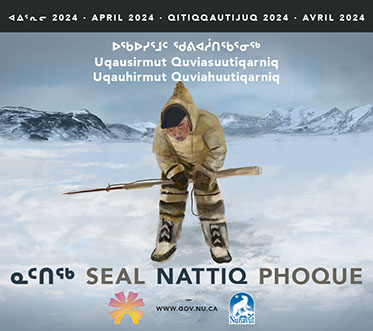Nunani: Of cabbages and kings (Part five)
RACHEL ATTITUQ QITSUALIK
Inuit have been very successful at political negotiation, adeptly arranging for their own beneficiary corporations and an Inuit-dominant territory. While just as burdened by the infighting that plagues aboriginal bodies around the world, Inuit have been able to set differences aside in order to achieve common goals. Why?
The ability stems from cultural training — that which modern leaders, in their eagerness to adopt southern administrative methods, too often abandon these days. Today, it seems we always hear individual leaders taking credit for initiatives, without any nod to those teams that did the back-breaking work.
Real Inuit culture is wonderfully non-heroic — emphasizing humility, mutual sacrifice and respect. There is a great irony here. When all individuals within a group contribute equally, all become equally important, so that every individual within that group is valuable. Thus do Inuit value individualism, as the very result of valuing the group.
But this principle is only ingrained through practise, for it constitutes an actual mode of thought, a way of life. And Inuit have instilled this mode of thinking into their children by encouraging them to play certain types of games.
So, when I was asked to show southern army cadets how Inuit “survive,” one of the things I realized was that I was going to have to change their thinking. I decided I would lecture them on survival only briefly, but use the rest of the time getting them to play Inuit games.
The cadets eagerly took to the games, but my desired effect truly blossomed once I had them playing outside games — such as amaruujaq (“play wolf”). This is a chase game without teams, of course, wherein the roles of victim and wolf constantly interchange, so that a given victim is always thinking about when he will next become the wolf, and the wolf must ever think about again being the victim. There is no room for elitism, nor is individual achievement possible without the group. This a sort of game that is especially Inuktitut, in that it trains one to release natural aggression without resorting to the “us and them” thinking necessitated by team sports. Because of the constantly shifting roles in amaruujaq, every player must remain mindful of every other group member, without bonding to a team.
A player must constantly place himself in someone else’s shoes: victim, wolf, victim again. I could immediately tell that the cadets were not used to thinking this way, for when they first began to play, they just about killed one another — tackling, choking, flipping, and ramming in predatorial glee. I remember walking over to one of the adult officers (who was wincing at the sight), and saying, “White kids are crazy.”
But, as time went on, the game worked its magic. The cadets learned that, whenever one of them played rough, they would get it back twice as bad next time. The rough-and-tumble levelled out, softened, as each player realized that he or she had to remain aware of the entire group, and could not survive by acting as a hero among lessors.
They played amaruujaq long into the night, and — coincidentally — under the light of a great, glowing, full moon.
I went to bed pleased that the cadets had had fun, but I wasn’t sure how much “survivalism” they had learned. I had taken a risk.
I only knew for sure the next day, when I went out with the third and final group of cadets who were to learn how to build fires. They fared no better than the first two groups, and in fact the individuals that comprised this group seemed less clever and attentive, on average. But I and other adults noticed something we hadn’t seen in the other groups: these cadets, without asking permission, were helping each other. They were building fires together, trading materials and suggestions, treating the fire-building as a common goal rather than as an individual test.
Then I knew I had been right to show them our games, for they were thinking a little more “Inuktitut” now. There is lots of time to learn tricks for overcoming problems upon which survival depends; but in the long-term, survival for life means working with others in a harmonious way.
They had a lot to learn yet, but at least they had begun to learn it as members of one tribe.
Pijariiqpunga.




(0) Comments